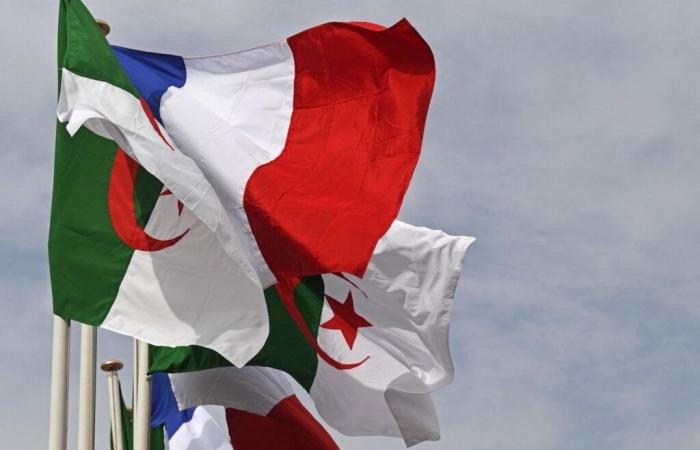Since January, five Algerian influencers and a Franco-Algerian have been targeted by procedures in France for hate speech, in a context of diplomatic tensions between Paris and Algiers. These tensions rose further with the attempt to send back to Algeria, on January 9, the tiktoker “Doualemn”, accused of having called for “give a severe correction” to an Algerian opponent, which ended in failure.
The French Interior Ministry indicated that Algiers had banned the man from entering the country, even though he had an Algerian passport. For its part, Algiers affirmed that this reaction aimed to ensure respect for the rights to a trial of this person, who has lived in France for thirty-six years.
Reacting on January 10, the Minister of the Interior Bruno Retailleau affirmed that “Algeria seeks to humiliate France”, adding that“keeping our cool (…) we must now evaluate all the means that are at our disposal, vis-à-vis Algeria.” His colleague in foreign affairs, Jean-Noël Barrot, added by affirming that “France will have no other option than to retaliate” and “the Algerians continue this posture of escalation”. But what means does France have?
► Visas versus consular passes
First lever: visa restrictions. In 2023, France issued 209,708 visas to Algerians, fourth place behind Chinese, Moroccans and Indians. This is 59.8% more than in 2022. In 2021, Paris had in fact announced a 50% reduction in the number of visas granted by Algiers, in retaliation for its lack of cooperation in issuing consular passes, mandatory to expel undocumented Algerians. The measure was not without results since 1,876 removals were carried out in 2022 and 2,567 in 2023, compared to only 828 in 2020.
But the rate remains low when we know that the number of expulsion measures issued to Algeria exceeds 25,000 each year. In addition, the measure requires once again entering into a real standoff with Algiers. It can also create tensions in France knowing that nearly 900,000 Algerian immigrants, potentially wishing to receive their families, reside in the territory, forming the largest community in the country.
► Questioning the 1968 agreement
Signed at the time to define new rules, after the Evian agreement which allowed free movement between the two countries after independence, this text still confers a certain number of advantages on Algerians: particularly with regard to family reunification, easier; the possibility of obtaining a ten-year residence permit for the spouse, accelerated; or even the regularization of legally undocumented immigrants after ten years.
On the right, many regularly call for denunciation or renegotiation. Nicolas Sarkozy also tried it in 2010, before giving up, Algiers threatening to call into question cooperation in the fight against terrorism.
► Other levers mentioned by Jean-Noël Barrot
Development aid is also a classic lever on which France regularly plans to put pressure. In 2022, France paid 131.79 million euros to promote programs in health, water resources, economic diversification… But this amount, relatively modest compared to Algeria’s GDP, only allows us to hope for relative effectiveness.
On the other hand, France cannot decide unilaterally to increase its customs duties vis-à-vis Algeria, which falls under the European Union. Especially since this would increase the cost of importing hydrocarbons, in a context where Europe is seeking to do without Russian gas. Nor can it freeze the assets of Algerian dignitaries, as a petition proposes, without legitimate legal grounds.
On the other hand, indicated the Minister of Foreign Affairs Jean-Noël Barrot, Paris has “a whole arsenal of diplomatic responses, some things we say, others we don’t.”
Among the discreet levers, while many Algerian dignitaries come for treatment in France or send their children to study there, the government could be tempted to reduce the tap in a targeted manner. For example by restricting the number of diplomatic passports granted to Algerian officials.
But in all cases, Paris will have to measure the benefits and risks of these retaliatory measures, in a geopolitical context where Algiers has moved closer militarily to Russia and economically to China.






